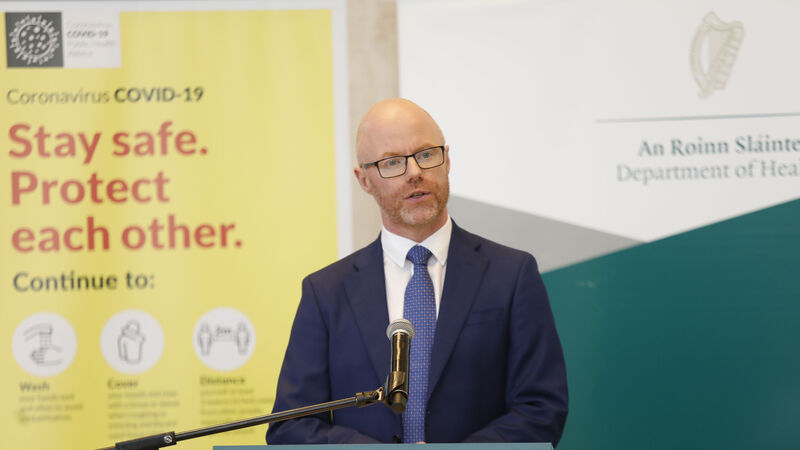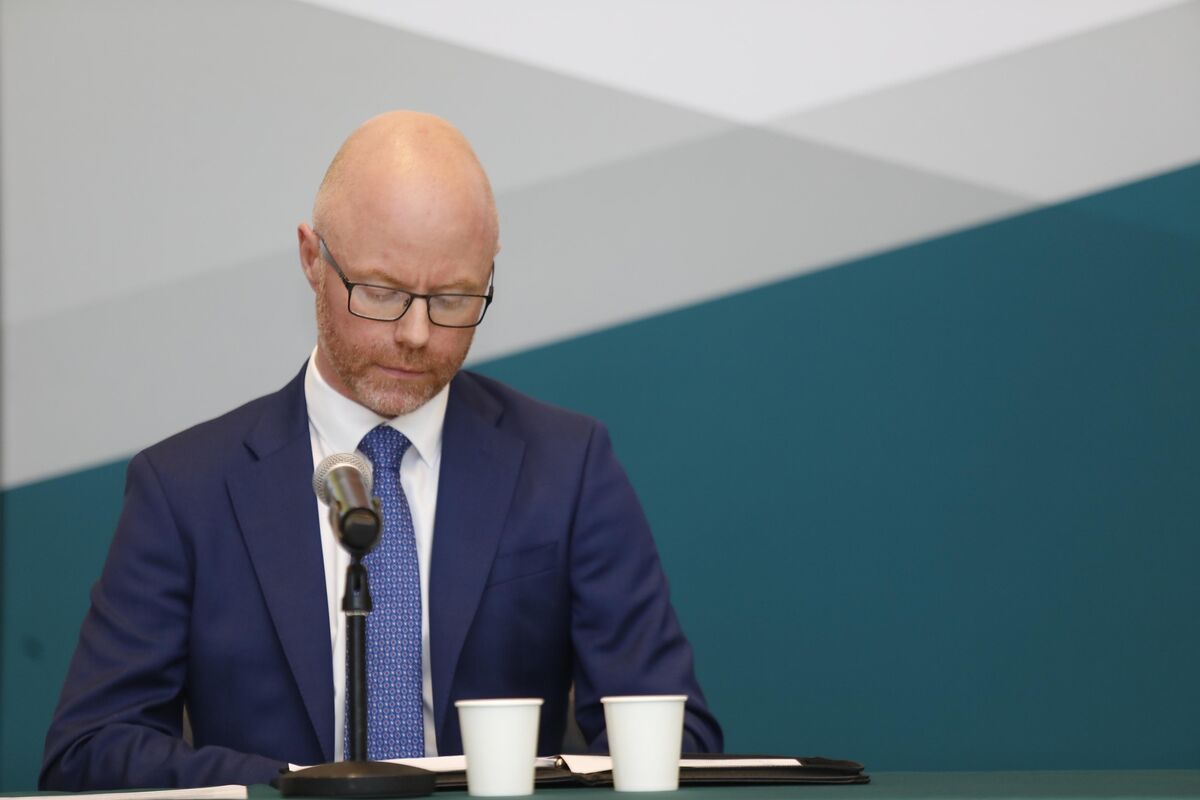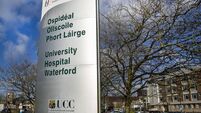Colour-coded warning system to outline Covid threat in regions

Ireland is moving to a colour-coded system for Covid awareness and spread.
The new system, recommended by public health doctors to the government, will see a move away from the "phases of lockdown" the state had previously used, and will be moving to one similar to that of weather warnings.
Health Minister Stephen Donnelly said the change was necessary to plan for the next nine months of living with the virus.
"There's been an awful lot of good work done on the plan already," he said.
"NPHET have spent a considerable amount of time moving from a successful piece of work to date, which was responsive in its nature, as we learn more and more about this virus.
"The colour-coded system is one we'd all recognise from weather warnings, a yellow level, where we would be at for the most of the country, the orange level would be some version of what Laois, Kildare and Offaly have in place right now, and the red level, which we've all been accustomed to and what Auckland is currently dealing with right now.
The minister added that there had been "genuine confusion" when Ireland launched it's so-called travel "green list", and cabinet decided that blue would be the colour for the most positive warning.
"When you looked at that green list, countries that were not really green, we still have to take measures ourselves, we have to follow basic guidelines, the business community still have to put up with a lot and so on.
"So the idea is a colour coded system so we can see how we're doing, how our local areas are doing and plan ahead a bit more."
The government say that it is essential to plan ahead for life living with Coronavirus without a vaccine, which NPHET say could be up to two years, and the colour-codes will be the foundation of that plan.
"The phases was an idea where we moved through a time period, when the original roadmap came in there was a timeline attached to it, every six weeks we'd move out," Mr Donnelly added.
"This is different, no matter what day of the week, or what week are we at, are we at status yellow? Or have things got to a point we need to move to organise across the country or different regions.
Laois, Offaly and Kildare have been reverted back to county-wide travel restrictions after several Covid outbreaks in meat packing plants and Direct Provision centres, and the Health Minister says it is possible it could happen again in other counties.
"I believe the measures the public health doctors recommended for Kildare, Laois and Offaly are nuanced," he said.
"It's entirely possible (it could happen again), we've seen just how quickly the virus can spread and we need to react quickly, in those counties if we hadn't reacted as quickly, it would've seeped into the community and spread around the country and we'd be back to the start again and having to reimpose really strict measures across the country.
"We have to have a situation where a worker can raise their hand to their employer and to their GP and say; 'I have symptoms' and their GP refers them for a test.
"The most important thing is that no one feels; 'I can't do that, I'm out of work for two weeks, I can't pay bills or feed my family', and take some paracetamol and hope it isn't COVID, we can't have that."
The Minister added that NPHET told cabinet, that one asymptomatic person can infect 40 people.
The Minister also admitted that issues had been identified with test and trace.
"We were down to 20 positive tests a day, so operations were scaled back, for clinical calls the number was reduced," he said.
By Vivienne Clarke

Minister for Health Stephen Donnelly has explained that the new colour coding system for Covid-19 will be similar to weather warnings with the added category of blue, which is the colour of vaccines in the medical world, he said.
A ‘green’ category had been avoided he said because of concern about confusion with the green list of countries to which it was possible to travel without having to quarantine on return.
Under the new colour coding system it would be possible to see how the country, the county, the region and local area is doing he told RTÉ radio’s Morning Ireland.
The Minister also explained that the colour coding system was different from the phases which were a specific time period with a timeline attached.
Mr Donnelly denied that introducing restrictions in Laois, Offaly and Kildare had been “a blunt instrument”. If such measures had not been introduced it was “entirely possible” that the same restriction would have to be introduced elsewhere again.
If the Government had not reacted as quickly as it did, the virus could have spread “around the country” and “we would have been right back at the beginning.” It was important to move as quickly and as locally as possible, he said.
Mr Donnelly defended the testing system and its capacity and said work was being done to make it “quicker and quicker”.
He added that “one or two issues” had been identified where testing and tracing operations had been scaled back because “we were down to 20 positive tests.”
Clinical calls for those who had tested positive were not being processed “as quickly as we’d like” and there had been a “two to three-day delay,” he acknowledged.
When asked if he was happy that the State was going to have to pay sick pay to meat plant workers, Mr Donnelly said he was “very happy” that the State would pay PUP and any Covid related sick pay as it was important that there not be a situation where anybody felt they could not say they were sick because they were afraid they could not pay their bills.
“We absolutely can’t have that.” One person going into work, in good faith, while sick could infect up to 50 people, he warned. Every employee must feel they can go to their GP, he said.
On the issue of data protection, Mr Donnelly said he did not think there was a problem. It was important that the employee be the first to be told if they had tested positive, but it was also important that the employer know so they could act “straight away.”
The response of the Irish people to date has been “nothing short of spectacular”. The data showed that despite the clusters the level of community transmission in Ireland is very low, he said.
“We could be looking at this for nine months to two years before a vaccine comes through so we need to be fully transparent with people.”
Restrictions had been put in place to save lives, to protect vulnerable people and the local economy, added the Minister.
Meanwhile, World Health Organisation (WHO) representative David Nabarro has said that localised lockdowns are going to be more frequent in the future and the public is going to have to learn to live with the constant threat of the virus.
The question of how much of an area should be focused on to supress spread of the virus will evolve over time, he told RTÉ radio’s Today with Sarah McInerney show.
The authorities will go for a wider area at the beginning, but over time “as we get more sophisticated” the area will narrow, he said.
When questioned on the issue of school uniforms and if it was necessary to wash them every day (as some schools have instructed in advance of reopening), Dr Nabarro said that while it was a good practice, he was not saying “with absolute certainty” that it was necessary.
The really important thing was for children (and teachers) to be comfortable and to “see how it goes.” All the evidence to date was that the virus dies on surfaces after a number of hours, he said.
Schools had to reopen, “we can’t go on postponing reopening.” Dr Nabarro acknowledged that there will be clusters in schools or universities which would have to close.
There needed to be a protocol in place if there was an outbreak. At present if there was an outbreak in a school he expected that the whole school would close, but over time he said he expected a titrated closure which would continuously measure the outbreak.
The interests of pupils and teachers needed to be put first, he said.
In the meantime it was important that health services be maintained. “We don’t want Covid leading to the closing down of services.” The area of dentistry was more complex he said and the guidance from the WHO was to be careful.





